
Allied Health courses in Toowoomba
Course providers in Toowoomba
The following providers offer Allied Health courses in Toowoomba.


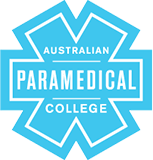







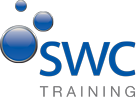
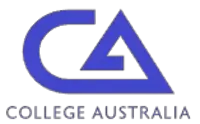





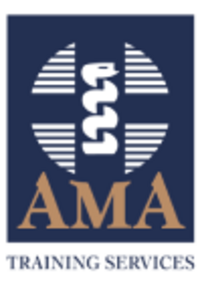














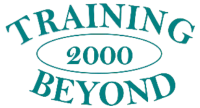






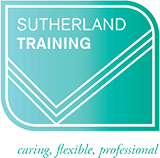





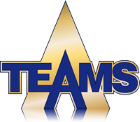






Career Pathfinder
Skills shortages + AI Exposure
Discover in-demand careers and understand how each role may be impacted by AI and automation.
- See in-demand occupations across Australia
- Check AI Exposure ratings
- Compare training duration and average income
Common questions
Occupational therapists help patients perform tasks in daily life, while physiotherapists help patients improve their movement, strength and function. The term occupation refers to everyday life tasks, while physiotherapy refers to physical therapy. Both are science-based allied health roles that aim to improve quality of life through prevention, maintenance and treatment.
 Stephen Charlton
Stephen Charlton
You can become qualified to work as an occupational therapist by completing one of the following degrees, depending on your educational pathway:
- Master of Occupational Therapy (postgraduate degree)
Average duration: 24 months - Bachelor of Occupational Therapy (Honours)
Average duration: 4 years - Bachelor of Occupational Therapy
Average duration: 4 years
 Stephen Charlton
Stephen Charlton
You can become qualified to work as a physiotherapist by completing one of the following degrees, depending on your educational pathway:
- Doctor of Physiotherapy (postgraduate degree)
Average duration: 3 years - Master of Physiotherapy (postgraduate degree)
Average duration: 24 months - Bachelor of Physiotherapy (Honours)
Average duration: 4 years - Bachelor of Physiotherapy
Average duration: 4 years
 Stephen Charlton
Stephen Charlton
Yes, you need to complete an accredited degree to work legally as an occupational therapist or physiotherapist in Australia. The two core pathways are completing a bachelor’s degree or a postgraduate degree. The Occupational Therapy Council of Australia and Australian Physiotherapy Council are responsible for accrediting such courses.
 Stephen Charlton
Stephen Charlton
Yes, overseas-qualified practitioners can work in Australia by registering with the Occupational Therapy Board of Australia or Physiotherapy Board of Australia. Practitioners who are currently registered with the Occupational Therapy Board of New Zealand or Physiotherapy Board of New Zealand can apply directly for Australian registration. Other overseas-qualified practitioners have to fulfil the requirements listed on the relevant webpages of the Occupational Therapy Board of Australia and Physiotherapy Board of Australia.
 Stephen Charlton
Stephen Charlton
If you have already completed an approved degree in a different discipline, you can gain an accredited postgraduate degree to become qualified to work as an occupational therapist or physiotherapist. Examples of such degrees are a Master of Occupational Therapy, Master of Physiotherapy and Doctor of Physiotherapy. Postgraduate degrees in these fields may have additional entry requirements, including but not limited to health-related prerequisite subjects.
 Stephen Charlton
Stephen Charlton
In some cases, completing vocational education and training (VET) in a related discipline can allow you to meet the entry requirements for a bachelor’s degree in these fields. Entry requirements vary between educational providers. Some providers offer a VET entry pathway with a minimum of a Certificate IV, but others require a minimum of a diploma or advanced diploma. Some providers do not offer a VET pathway for these courses at all. Therefore, it’s wise to confirm the entry requirements for your desired bachelor’s degree before starting a VET course.
 Stephen Charlton
Stephen Charlton
In addition to completing an accredited degree, occupational therapists and physiotherapists will need to register with the Occupational Therapy Board of Australia or Physiotherapy Board of Australia to work in Australia. The Australian Health Practitioner Regulation Agency (AHPRA) administers practitioner registration on behalf of these boards. There are different requirements to gain registration for Australian-qualified practitioners, New Zealand-registered practitioners, and other overseas-qualified practitioners.
 Stephen Charlton
Stephen Charlton
Career paths for these professions include independent contracting, starting a practice, working in community care, paediatrics, mental health, rehabilitation, disability, medical or aged care sectors).
 Stephen Charlton
Stephen Charlton
Jobs and Skills Australia reports that the median full-time weekly earnings for occupational therapists and physiotherapists in 2024 are $1,526 and $1,710, respectively. These figures can be contrasted with Australian workers of all occupations, who earn a median full-time weekly income of $1,697.
 Stephen Charlton
Stephen Charlton
There is a significant demand for occupational therapists across Australia. Jobs and Skills Australia’s Occupation Shortage List indicates that the labour market had a shortage of occupational therapists across all states and territories from 2022 to 2024.
 Stephen Charlton
Stephen Charlton
There is substantial demand for physiotherapists in Australia. Jobs and Skills Australia’s Occupation Shortage List indicates that the labour market experienced a shortage of occupational therapists and physiotherapists in most states and territories from 2022 to 2024.
 Stephen Charlton
Stephen Charlton
Working as an occupational therapist or physiotherapist comes with the satisfaction of directly helping to improve patients’ quality of life. Furthermore, the job market is promising, as Jobs and Skills Australia reports there is significant labour market demand for both professions. The future outlook is also positive, as Jobs and Skills Australia reports that the annual employment growth in 2024 for occupational therapists and physiotherapists is 2,200 and 4,100, respectively.
 Stephen Charlton
Stephen Charlton
Further reading


What can you do with a Certificate IV in Allied Health Assistance (Physiotherapy)?
3rd March 2022
What can you do with a Certificate III in Allied Health Assistance?
8th January 2020All courses
- HLT33021 Certificate III in Allied Health Assistance
- HLT47321 Certificate IV in Health Administration
- CHC43315 Certificate IV in Mental Health
- CHC53315 Diploma of Mental Health
- HLT52021 Diploma of Remedial Massage
- HLT41120 Certificate IV in Health Care
- HLT54121 Diploma of Nursing
- Bachelor of Clinical Exercise Physiology (Honours)
- HLT42512 Certificate IV in Allied Health Assistance
- HLTWHS003 Maintain Work Health and Safety
- Bachelor of Biomedical and Exercise Science
- Bachelor of Health Science
- Master of Applied Psychology (Clinical Psychology)
- CHCCCS010 Maintain a High Standard of Service
- BSB40212 Certificate IV in Business (Health Practice Managers)
- CHCSS00133 Induction to Disability Support
- Bachelor of Exercise Science (Clinical Practice)
- HLT32912 Certificate III in Health Administration
- HLTINFCOV001 Comply with infection prevention and control policies and procedures
- Graduate Certificate in Sport and Exercise Science
- Master of Occupational Therapy
- Master of Speech Pathology
- Graduate Certificate in Global Health
- HLT23215 Certificate II in Health Support Services (Health Administration)
- Bachelor of Sport and Exercise Science (Honours)
- 22656VIC Advanced Diploma of Myotherapy
- Bachelor of Medical Imaging
More about Allied Health courses
Looking to advance your career in the healthcare sector? Toowoomba offers a diverse range of Allied Health courses tailored for both beginners and experienced professionals. With 13 courses available, including highly sought-after qualifications such as the Certificate III in Allied Health Assistance and the Certificate IV in Mental Health, there are ample opportunities to enhance your skills and knowledge in this vital field. Toowoomba's local training providers, including TAFE Queensland and UQ Skills, offer quality education in both campus and online formats, ensuring you get the support you need to succeed.
For those just starting in the Allied Health sector, beginner courses such as the Assist Clients with Medication Skill Set and the Certificate III in Individual Support (Disability) provide a solid foundation to launch your career. Alternatively, experienced learners can pursue advanced qualifications like the Diploma of Remedial Massage or Bachelor of Nursing, opening the door to more fulfilling roles in healthcare. Explore further specialties within the Allied Health field, including Physiotherapy, Naturopathy, and Midwifery, to find the right career path for you.
Toowoomba boasts a vibrant community, with training options like Lifetime International Training College and RuralMedEd offering hands-on learning experiences. By choosing a local provider, you benefit from networking opportunities and industry connections that can enhance your job prospects in the competitive Allied Health field. Don't miss your chance to join this rewarding industry—start your journey today by exploring the various First Aid, Ambulance and Paramedic, and Pathology courses available in Toowoomba!
